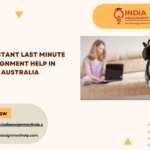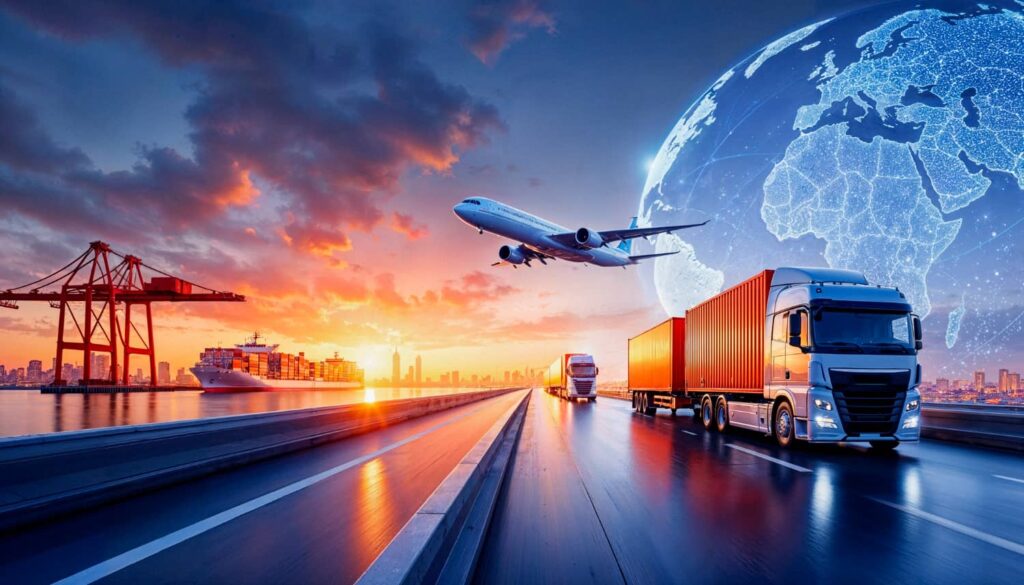Imagine this: you’re running a logistics company in Malaysia, juggling tight delivery schedules, fuel costs, and a fleet of trucks crisscrossing the peninsula. The pressure’s on to keep things moving smoothly, but there’s a growing buzz about sustainability. Clients are asking about your carbon footprint, regulators are tightening emissions standards, and, honestly, you’re starting to wonder how to keep up without losing your edge. Sound familiar? This is where ISO 14001 training steps in—not just as a checkbox for compliance but as a way to rethink how your business impacts the environment and your bottom line.
ISO 14001, the global standard for environmental management systems (EMS), isn’t just for tree-huggers or massive corporations. It’s a practical framework that can help logistics and transportation companies in Malaysia reduce waste, cut costs, and stay competitive in a world that’s increasingly green-conscious. But here’s the thing: implementing it effectively starts with proper training. Let’s explore why ISO 14001 training is a must for your logistics business, how it works, and why it’s more than just a certificate to hang on your office wall.
What’s ISO 14001, and Why Should You Care?
At its core, ISO 14001 is a set of guidelines that helps businesses manage their environmental responsibilities. Think of it like a roadmap for reducing your company’s ecological footprint while keeping operations smooth. For logistics and transportation companies—where fuel consumption, vehicle emissions, and waste from packaging are part of daily life—this standard is a lifeline. It’s not about preaching sustainability; it’s about making smart choices that save money and build trust with clients.
Why does this matter in Malaysia? The country’s logistics sector is booming, with ports like Port Klang handling millions of containers annually and road transport keeping the economy’s pulse beating. But with growth comes scrutiny. The Malaysian government is pushing for greener practices through initiatives like the Green Technology Master Plan, and clients, especially international ones, are demanding eco-friendly partners. ISO 14001 training equips your team to meet these expectations head-on. It’s like giving your business a sustainability upgrade without reinventing the wheel.
The Nuts and Bolts of ISO 14001 Training
So, what does ISO 14001 training Malaysia actually involve? It’s not about sitting through endless lectures or memorizing jargon. Good training programs are hands-on, tailored to your industry, and designed to make environmental management feel like second nature. Here’s a quick breakdown of what you can expect:
- Understanding the Standard: You’ll learn the ins and outs of ISO 14001, from identifying environmental aspects (like emissions or fuel use) to setting realistic goals for reducing them.
- Practical Application: Training often includes real-world scenarios—like how to optimize delivery routes to cut fuel consumption or manage hazardous waste from vehicle maintenance.
- Auditing Skills: For those going deeper, internal auditor training teaches you how to check if your EMS is working and where it needs tweaking.
- Team Engagement: It’s not just for managers. Drivers, warehouse staff, and even admin teams learn how their roles tie into sustainability.
You know what’s great about this? Training isn’t a one-size-fits-all deal. In Malaysia, providers like SIRIM QAS International or local consultancies offer courses that range from one-day workshops to multi-week programs, often customized for logistics. Whether you’re a small haulage firm in Johor or a multinational with hubs in Penang and KL, there’s a course that fits.
Why Logistics Companies Can’t Afford to Skip This
Let’s get real for a second. Running a logistics or transportation company in Malaysia is no walk in the park. Fuel prices fluctuate, traffic jams in Klang Valley eat into profits, and customers expect deliveries yesterday. So, why add ISO 14001 training to your already packed to-do list? Because it’s not just about being “green”—it’s about staying ahead of the curve.
For starters, ISO 14001 certification can open doors to new contracts. Big players like multinational corporations or government agencies often require suppliers to have an EMS in place. Without it, you’re out of the running before the race even starts. Training ensures your team knows how to implement and maintain that system, so you’re not scrambling when a client asks for your environmental credentials.
Then there’s the cost-saving angle. Optimized routes, better fuel efficiency, and less waste don’t just help the planet—they hit your bottom line in a good way. A logistics company in Shah Alam, for example, reported a 15% drop in fuel costs after implementing ISO 14001 practices, thanks to training that showed drivers how small changes, like avoiding idling, add up.
And let’s not forget reputation. In a world where consumers and businesses alike are watching, being seen as environmentally responsible gives you an edge. It’s the difference between being just another haulier and being the one clients trust to deliver—literally and figuratively.
A Quick Detour: The Malaysian Context
Here’s something to think about: Malaysia’s unique as a logistics hub. With its strategic location in Southeast Asia, it’s a gateway for trade between East and West. But that also means heavy traffic—both on roads and at ports—and a bigger environmental footprint. The haze from forest fires, urban pollution, and the push for renewable energy are all part of the conversation here. ISO 14001 training doesn’t just teach you to comply with local regulations like the Environmental Quality Act; it helps you navigate these challenges with confidence.
Plus, there’s a cultural angle. Malaysians value community and harmony—think of the gotong-royong spirit. Sustainability aligns with that ethos. Training your team to think environmentally isn’t just good business; it’s a way to connect with local values and show you’re part of the bigger picture.
How Training Turns Challenges into Opportunities
Logistics and transportation come with unique environmental headaches. Fuel emissions, tire disposal, and packaging waste are just the start. ISO 14001 training flips these challenges into opportunities. Let me explain.
Take fuel consumption. It’s a huge cost driver, right? Training shows you how to analyze your fleet’s performance and implement changes—like eco-driving techniques or switching to electric vehicles where feasible. A Penang-based logistics firm I heard about cut emissions by 10% just by training drivers to avoid harsh acceleration. Small tweaks, big impact.
Then there’s waste. From pallets to packaging, logistics generates a lot of it. Training helps you identify where waste happens and how to reduce it—maybe by switching to reusable containers or recycling programs. It’s not rocket science, but it takes know-how to get it right.
And here’s a curveball: training can boost employee morale. When your team sees the company taking steps to be more sustainable, it gives them a sense of purpose. In a tight labor market like Malaysia’s, where skilled drivers and warehouse staff are in demand, that’s a hidden win.
Choosing the Right Training Provider in Malaysia
Not all training programs are created equal. You want one that speaks your language—logistics, not just generic environmental jargon. Here are a few tips for picking the right provider:
- Industry Focus: Look for trainers with experience in logistics or transportation. Companies like TÜV SÜD Malaysia or local players like GreenTech Malaysia understand the sector’s quirks.
- Flexibility: Whether you need in-person sessions in KL or online courses for your team in Sabah, choose a provider that fits your schedule.
- Certification: Ensure the training aligns with ISO 14001:2015 standards and offers recognized certificates.
- Practicality: The best programs use case studies and examples from the logistics world, not just theory.
Pro tip: Check if the provider offers follow-up support, like audits or refresher courses. You don’t want to be left hanging after the training ends.
Getting Started: Your Next Steps
So, you’re sold on the idea of ISO 14001 training. What now? First, take stock of where your company stands. Are you already doing some green practices, like recycling or fuel monitoring? That’s your starting point. Next, talk to your team. Get buy-in from drivers, warehouse managers, and even the finance folks—everyone plays a role.
Then, reach out to a training provider. In Malaysia, options range from global names like Bureau Veritas to local consultancies that know the lay of the land. Many offer free consultations to map out your needs. And don’t worry about the cost—think of it as an investment. The savings from reduced fuel use or new contracts will likely outweigh the upfront expense.
Here’s a quick checklist to kick things off:
- Assess your current environmental practices.
- Identify key staff who need training (managers, drivers, etc.).
- Research providers and compare their offerings.
- Set a timeline for training and certification.
A Final Thought: Why This Matters Now
You know what’s wild? The world’s changing faster than ever. Just a few years ago, sustainability was a “nice-to-have” for logistics companies. Now, it’s a must. With Malaysia aiming to be a carbon-neutral nation by 2050, the pressure’s on to act. ISO 14001 training isn’t just about keeping up—it’s about leading the pack.
Picture this: your trucks are running more efficiently, your clients are raving about your green credentials, and your team feels proud to be part of something bigger. That’s not a pipe dream; it’s what happens when you invest in training. So, why wait? The road to sustainability starts with a single step—or in this case, a single course. Are you ready to take it?
- ISO 14001 Training in Malaysia | ISO 14001 Lead Auditor
- Looking for ISO 14001 training in Malaysia? IAS offers an industry-leading ISO 14001 Lead Auditor course that will certify you as an EMS Lead Auditor!
- iso 14001 training malaysia
Related posts:
 Engineering Design Assignment Help: Making Complex Projects Easier for Students
Engineering Design Assignment Help: Making Complex Projects Easier for Students
 Get Instant Last Minute Assignment Help in Australia by India Assignment Help
Get Instant Last Minute Assignment Help in Australia by India Assignment Help
 AI and Job Security: Discover Which Tech Roles Are Truly Safe in 2025
AI and Job Security: Discover Which Tech Roles Are Truly Safe in 2025
 Defence Entrance Exam Coaching in Maharashtra – Your Path to a Glorious Career
Defence Entrance Exam Coaching in Maharashtra – Your Path to a Glorious Career
 How To Integrate AI With MERN Stack?: Future of Full Stack Development
How To Integrate AI With MERN Stack?: Future of Full Stack Development
 From Beginner to Developer: How Coding Bootcamps Prepare You for Real Jobs
From Beginner to Developer: How Coding Bootcamps Prepare You for Real Jobs
 Basic knowledge of trading helps you start your journey easily
Basic knowledge of trading helps you start your journey easily
 Top-Rated Finance Assignment Help Services in the USA – Your Guide to Expert Solutions
Top-Rated Finance Assignment Help Services in the USA – Your Guide to Expert Solutions







